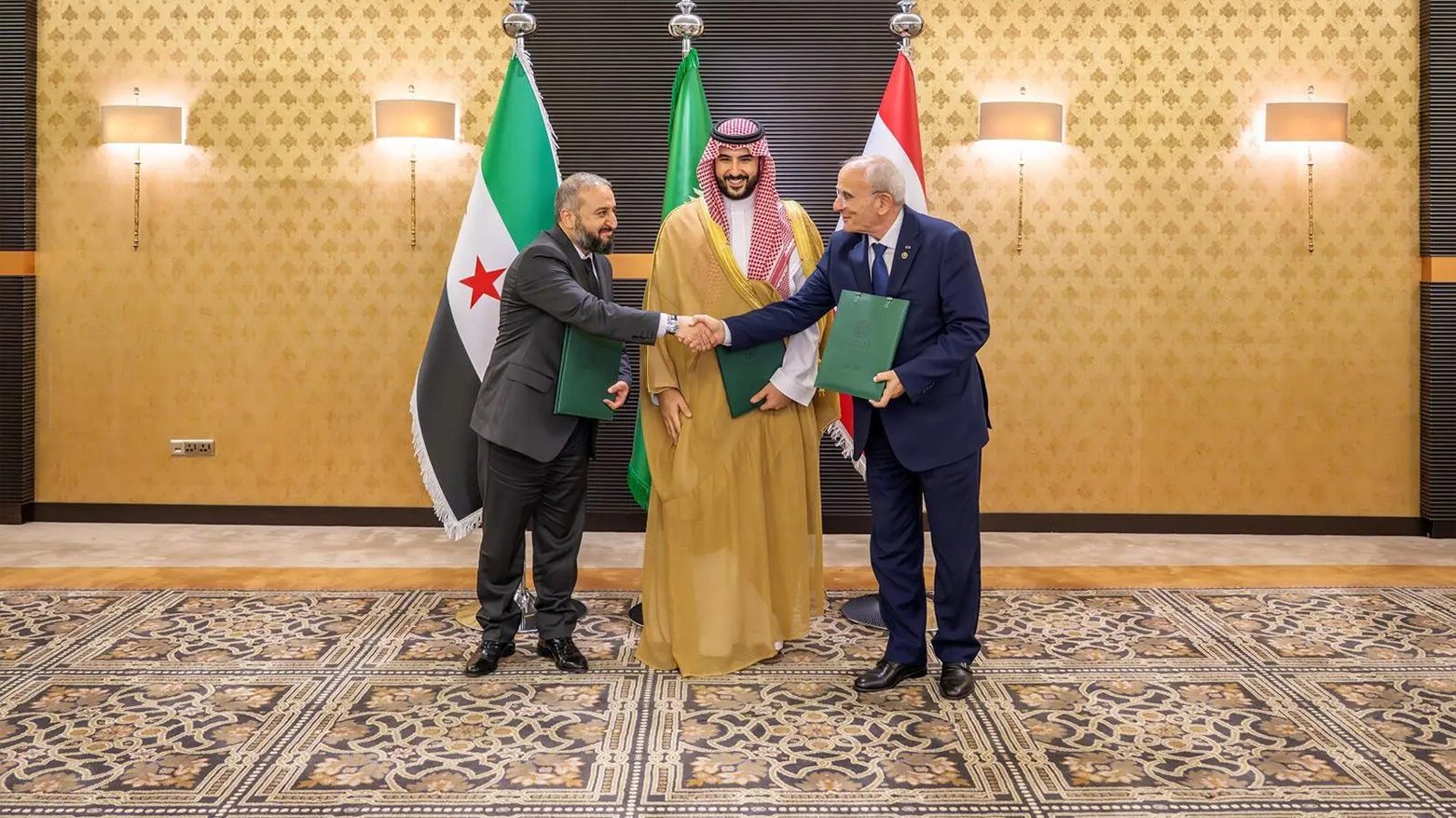Lebanon, Syria Strike Border Accord in Jeddah
Key outcomes of the meeting include an agreement to formally demarcate the border, the formation of legal and technical committees to resolve lingering cross-border disputes, and the activation of joint coordination mechanisms to tackle growing security and military challenges.

By Kamaran Aziz
ERBIL (Kurdistan24) — In a major diplomatic breakthrough, Lebanon and Syria have reached a landmark agreement to strengthen coordination on border security and officially demarcate their shared frontier, following talks in the Saudi city of Jeddah. The meeting, held on Thursday, was facilitated under Saudi mediation and signals a new phase in bilateral cooperation between the two neighboring countries long troubled by smuggling, insecurity, and strained political ties.
According to the Saudi Press Agency (SPA), the Jeddah meeting brought together the minister of Defense in the Syrian transitional government Marhaf Abu Qasra and his Lebanese counterpart Michel Mansi, under the auspices of Saudi Defense Minister Prince Khalid bin Salman bin Abdulaziz Al Saud. The trio discussed ways to enhance regional stability, with a particular focus on the porous 330-kilometer Lebanon-Syria border.
Key outcomes of the meeting include an agreement to formally demarcate the border, the formation of legal and technical committees to resolve lingering cross-border disputes, and the activation of joint coordination mechanisms to tackle growing security and military challenges. These efforts are expected to target rampant smuggling networks, illegal crossings, and the trafficking of arms and contraband, issues that have long destabilized both countries and the wider region.
The border agreement comes in the wake of a violent confrontation earlier this month that left seven Lebanese nationals and three Syrians dead, according to Lebanon's Ministry of Health. The incident occurred along the eastern frontier and briefly raised the specter of wider conflict before both sides issued a ceasefire and pledged to de-escalate tensions.
Clarifying the nature of the March clash, Lebanese President Joseph Aoun stated in an interview with France24 that the Lebanese Army had engaged with cross-border smugglers, not Hezbollah operatives. “At first, there was no communication with the Syrian side. But once we clarified that it was the Lebanese Army, not Hezbollah, firing from our side, the situation calmed down,” Aoun noted.
The agreement also follows Syria’s recent security campaign in Homs province aimed at dismantling smuggling routes and asserting greater control over its border regions. Damascus has intensified operations in the area, citing increased illicit activity and the need to reassert national sovereignty.
Although a planned visit by Lebanese Defense Minister Michel Mansi to Damascus on Wednesday was postponed, both parties agreed in Jeddah to reconvene in Saudi Arabia for a follow-up session. General Aoun emphasized the significance of Saudi involvement, saying, “Being under a Saudi umbrella makes the process more constructive.”
The Kingdom of Saudi Arabia, once distanced from Lebanon due to Hezbollah’s Iran-backed dominance, appears to be recalibrating its regional strategy. With Hezbollah weakened after its drawn-out conflict with Israel—which concluded with a fragile ceasefire on November 27—Riyadh sees an opportunity to stabilize Lebanon through diplomatic engagement.
The Jeddah agreement marks a notable moment in regional diplomacy, offering hope for a more secure and regulated border, and perhaps paving the way for broader reconciliation between Beirut and Damascus under the watchful eye of Riyadh.